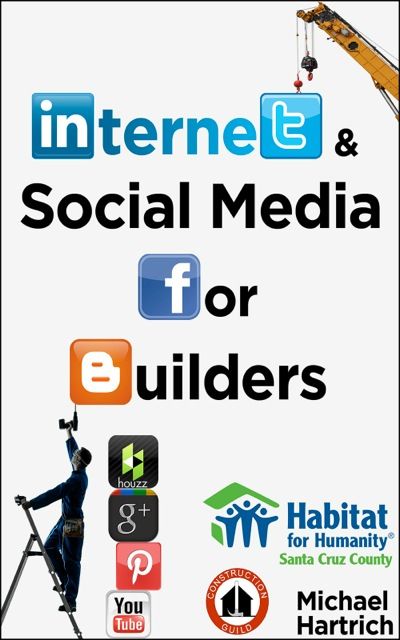
Like a lot of builders, Santa Cruz, Calif., contractor Mike Hartrich relied on word-of-mouth referrals to keep his business in the black. Although he never advertised, he had plenty of work.
Those were the good old days. Then in 2009, the construction business dried up as the economy went into a tailspin. “I’d always stayed busy,” he said recently by phone, “and then all of a sudden I wasn’t.”
Hartrich was hardly alone. Lots of other tradespeople weren’t getting much work, either. So Hartrich began browsing online resources on sites such as Yelp and Angie’s List for ideas on how to win back business. In the end, he decided to build his own online listing, launching the Santa Cruz Construction Guild the following spring.
Nearly four years later, the website is flourishing. It lists 160 local businesses, serving a market base of about 200,000 people, and it gets about 600 unique site visits per week. Santa Cruz residents can search out plumbers, electricians, remodelers, and dozens of other trade specialists and materials suppliers. Click on a business, and you’ll get a separate web page and contact information.
Keeping the list local is key
Hartrich built the list slowly, starting by contacting people he’d worked with. Companies can’t get listed without a local referral, and Hartrich retains final control over who makes it. But in nearly four years of operation, he said he’s had a total of three complaints. Two of those were old “grudge matches.”
He’s still building the list by searching out specific trades. He’d like to find, for example, an arborist and a crane service, and some in the trades have been slow to embrace the idea. For some reason, there’s no mason.
“Contractors are just so stuck in their ways,” he said. “They think, ‘I don’t need that. People call me.’ So a lot of them don’t get it and they’re not interested, although some of them are coming around.”
At the heart of Hartrich’s plan is helping small, local businesses. There are three local lumberyards and a local bank, for example, but no big out-of-town concerns.
“When you buy from a family-owned business,” says a placard at the guild’s website, “you are not helping a CEO buy a third vacation home. You are helping a little girl get dance lessons, a little boy get his team jersey, a mom or dad put food on the table, a family pay a mortgage, or a student pay for college.”
Hartrich at first tried to limit each category to three or four companies or contractors, but then he realized that the guild was something like a retail store. People wanted variety. A year and a half ago, he began adding advertising, most of which pertains directly to guild members.
Members pay $180 per year to be listed. Hartrich builds their web pages for them, moderates comments, and takes care of other administrative chores. The $28,000 he’s grossing from the site isn’t a full-time income, but it’s certainly more than chump change.
Idea can be exported to other areas
Hartrich believes that his idea could be equally successful elsewhere, and he’s worked on similar launches for nearby Monterey, Calif., as well as Green Bay, Wis. To be successful, however, an online guild such as these needs a local person to front it.
“I believe that the Construction Guild is a timely solution,” Hartrich said in an email. “I would like to see that model grow. However, because it is people-based, it does not lend itself to a strictly automated computerized system. Each guild is rooted in its local community and has its branches in digital space. Each guild needs to be strictly local and run by a local who will build it with the right people.”
Hartrich offers one approach for growing the idea elsewhere: Find a local person with good trade contacts to make the initial contacts, with Hartrich taking care of building individual pages and running the site on the back end. Revenue could be split.
“The reason the Santa Cruz guild works is because I run it,” he said. “People can call me up, and I can go in there and publish something quickly. I can unpublish it. I can make changes. It requires an individual to be in charge, and that’s a hard job [when he or she is] elsewhere.”
Web prowess leads to book for builders
Hartrich’s burgeoning internet skills eventually prompted him to write a new book on social media specifically for other builders. Internet and Social Media for Builders examines potential online resources that can help builders–Pinterest, Google +, Houzz and Facebook–and tells builders how to get started, even if they don’t think they need to.
“I’m a reluctant expert,” he said. “Seriously reluctant because I’m like most of the guys. They say, ‘Oh for God’s sake.’ If you can’t hit it with a hammer, it’s frustrating. Computers are like that. But the bottom line is we all need a web presence today.”
Hartrich suggests starting with one or two platforms. Houzz and Pinterest are especially helpful, he said, because they are photo oriented, and each photograph in effect becomes a digital business card. Other online resources, such as Twitter and LinkedIn, may be well suited to other fields–Twitter for journalists, for example–but they’re not the best ones for builders.
“There’s a lot of reluctance by builders to work on computers because they come home and want to spend time with their families,” he said. “They don’t want to do that stuff. But at the same time, you have to know what’s out there.
“All this internet stuff has got to be manageable,” he added. “And especially for contractors. It’s information overload, and that’s what we suffer from these days. It’s all too much. So here’s what you need to learn or know, and you can implelment some, all, or none of it. But there it is.”
More than half of the proceeds from sales of the book, $5 per copy, go to Habitat for Humanity. Hartrich’s goal, realistic or not, is to raise $1 million for the organization.
The book was published on Amazon’s Kindle platform, which means that there’s no traditional paper copy. The book can be downloaded from Amazon and read on a variety of digital devices, such as a tablet, a PC, or a smartphone.
“Many builders will hesitate to buy a Kindle book because they mistakenly believe they need a Kindle device,” Hartrich said. “In reality, it is really easy to download your own Kindle app from Amazon.” Amazon offers a variety of free apps at its website.
Hartrich identifies several advantages to the digital publishing route, including lower costs and instant access.
Fine Homebuilding Recommended Products
Fine Homebuilding receives a commission for items purchased through links on this site, including Amazon Associates and other affiliate advertising programs.

8067 All-Weather Flashing Tape

Affordable IR Camera

Reliable Crimp Connectors
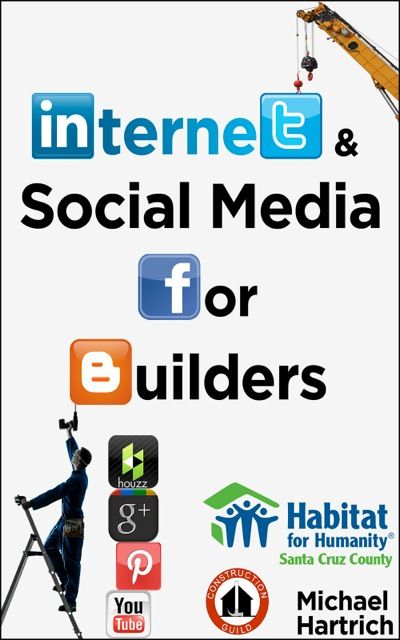

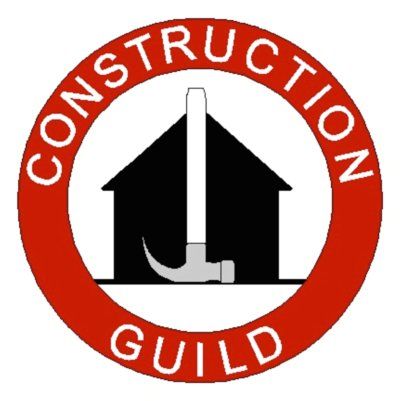




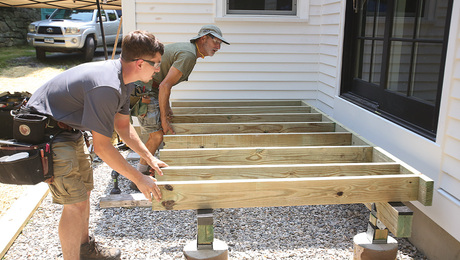

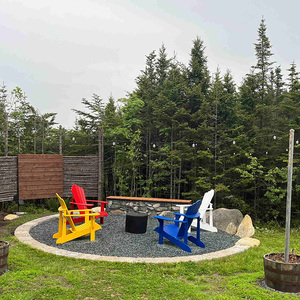
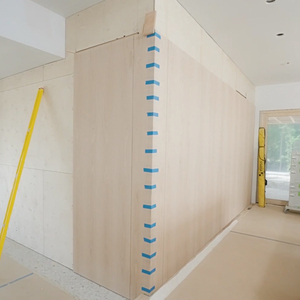
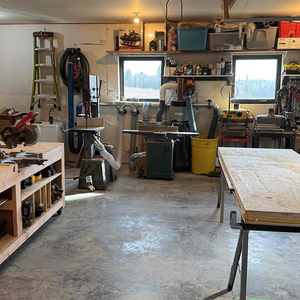
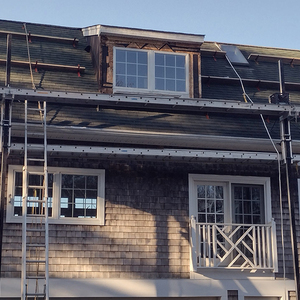

















View Comments
Habitat forHumanity gets $5 from each sale, Amazon gets $3 plus. Amazon Kindle is a great way to self-publish and raise money for fundraisers.